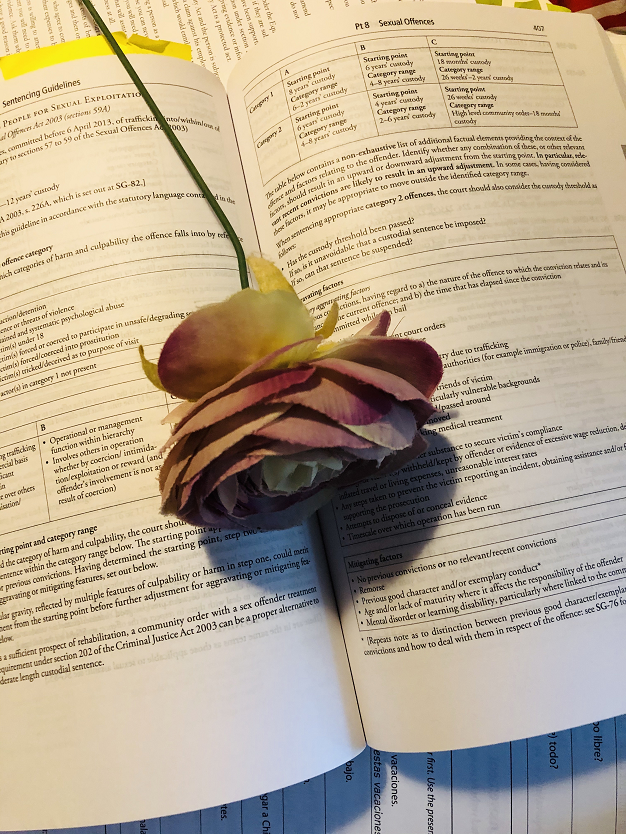Online Education Worldwide.



Class content guide, the teacher will adapt the content according to Educational regulations of the English Government and International education, what is called in English Curriculum of the Educational Law of the Department of Education.

All students will study Spanish from Year 7. AQA GCSE languages in Spanish is offered as an option subject as part of the E-BACC pathway. We teach grammar as a concept in Key Stage 4 through the four key skills of Listening, Reading, Writing and Speaking in the context of the cultures of the language studied. In KS3 we will be concentrating on learning parallel texts, Spanish one side, English the other. The text is made up of around 10-15 full sentences on a variety of topics.
The text is predominantly high frequency vocabulary and structures that can be recycled in a wide range of contexts. Grammar concepts will be introduced during the Key Stage 3, but not until at least Year 8.
We will concentrate on the students being able to speak and write the parallel texts we study and manipulate the texts when necessary. We will expect all our students to learn the parallel texts. This will be the minimum requirement every term for every student. Throughout their studies the students should gain a cultural awareness of Spanish culture, we expect this knowledge to help them to integrate into and make a greater contribution to both the community they live in and to the wider community. It is hoped that increased awareness to other cultures will make the students question themselves about their future ambitions and how they can continually strive to improve themselves.
Our specifications for Key Stage 4 and 5 are: For Year 10: https://www.aqa.org.uk/subjects/languages/gcse/spanish-8698
For Year 13: https://www.aqa.org.uk/subjects/languages/as-and-a-level/spanish-7692
The breakdown of topics covered across the year groups is detailed in the grid below. Please note this is subject to change as we adapt our curriculum to meet the needs of our students.

Teaching may be of any modern or ancient foreign language and should focus on enabling pupils to make substantial progress in one language. The teaching should provide an appropriate balance of spoken and written language and should lay the foundations for further foreign language teaching at key stage 3.
Learners studying English language in Online School
It should enable pupils to understand and communicate ideas, facts and feelings in speech and writing, focused on familiar and routine matters, using their knowledge of phonology, grammatical structures and vocabulary.
The focus of study in modern languages will be on practical communication. If an ancient language is chosen, the focus will be to provide a linguistic foundation for reading comprehension and an appreciation of classical civilisation.
Pupils studying ancient languages may take part in simple oral exchanges, while discussion of what they read will be conducted in English. A linguistic foundation in ancient languages may support the study of modern languages at key stage 3.

Teaching may be of any modern foreign language and should build on the foundations of language learning laid at key stage 2, whether pupils continue with the same language or take up a new one.
Teaching should focus on developing the breadth and depth of pupils’ competence in listening, speaking, reading and writing, based on a sound foundation of core grammar and vocabulary.
It should enable pupils to understand and communicate personal and factual information that goes beyond their immediate needs and interests, developing and justifying points of view in speech and writing, with increased spontaneity, independence and accuracy. It should provide suitable preparation for further study




1. The GCSE subject content sets out the knowledge, understanding and skills
common to all GCSE specifications in a given subject. Together with the assessment
objectives it provides the framework within which the awarding organisations create the
detail of their specifications, so ensuring progression from key stage 3 national
curriculum requirements and the possibilities for development into A Level.
Subject aims and learning outcomes.
2. Through studying a GCSE in a modern foreign language, students should develop
their ability and ambition to communicate with native speakers in speech and writing. The
study of a modern foreign language at GCSE should also broaden students’ horizons and
encourage them to step beyond familiar cultural boundaries and develop new ways of
seeing the world.
3. GCSE specifications in a modern foreign language should enable students to:
• develop their ability to communicate confidently and coherently with native
speakers in speech and writing, conveying what they want to say with increasing
accuracy
• express and develop thoughts and ideas spontaneously and fluently
• listen to and understand clearly articulated, standard speech at near normal speed
• deepen their knowledge about how language works and enrich their vocabulary in
order for them to increase their independent use and understanding of extended
language in a wide range of contexts
• acquire new knowledge, skills and ways of thinking through the ability to
understand and respond to a rich range of authentic spoken and written material,
adapted and abridged, as appropriate, including literary texts
• develop awareness and understanding of the culture and identity of the countries
and communities where the language is spoken
• be encouraged to make appropriate links to other areas of the curriculum to enable
bilingual and deeper learning, where the language may become a medium for
constructing and applying knowledge
• develop language learning skills both for immediate use and to prepare them for
further language study and use in school, higher education or in employment
• develop language strategies, including repair strategies
4. This content sets out the full range of content for GCSE specifications in modern
foreign languages. Awarding organisations may however use any flexibility to increase
depth, breadth or context within the specified topics or to consolidate teaching of the
subject content.
5. The content of the GCSE specifications in modern foreign languages must fully
reflect the aims and learning outcomes.
Prior learning
6. GCSE specifications will be cumulative and progressive in content and language.
They will take account of the matters, skills and processes specified in the national
curriculum programmes of study for key stages 2 and 3.
They will also build on the foundation of core grammar and vocabulary outlined in the programmes of study for key
stages 2 and 3, increasing the level of linguistic and cognitive demand.



• GCSE specifications will require students to understand and use language across a
range of contexts, appropriate to their age, interests and maturity levels• students will be expected to use language for a variety of purposes and with a variety of different audiences, including for personal, academic and employment related use
• students will make use of appropriate social conventions, including informal and formal address and register, as relevant to the task and language studied
• students will be expected to understand different types of spoken language,
including recorded input from one or more speakers in public and social settings
and recorded material from authentic sources and the media, appropriate to this
level
• students will be expected to understand different types of written language,
including relevant personal communication, public information, factual and literary
texts, appropriate to this level
• language contexts will be organised in a specified number of broad themes,
addressing relevant matters relating to:
o identity and culture
o local, national, international and global areas of interest
o current and future study and employment
• literary texts can include extracts and excerpts, adapted and abridged as
appropriate, from poems, letters, short stories, essays, novels or plays from
contemporary and historical sources
• the content, contexts and purposes of a GCSE specification in a modern
foreign language will provide an appropriate foundation for A level study and a
suitable preparation for higher education or employment

7. GCSE specifications in modern foreign languages must require students to:
Listening: understand and respond to spoken language
• demonstrate general and specific understanding of different types of spoken
language
• follow and understand clear standard speech using familiar language across a
range of specified contexts
• identify the overall message, key points, details and opinions in a variety of
short and longer spoken passages, involving some more complex language,
recognising the relationship between past, present and future events
• deduce meaning from a variety of short and longer spoken texts, involving
some complex language and more abstract material, including short narratives
and authentic material addressing a wide range of relevant contemporary and
cultural themes
• recognise and respond to key information, important themes and ideas in more
extended spoken text, including authentic sources, adapted and abridged, as
appropriate, by being able to answer questions, extract information, evaluate
and draw conclusions.
Speaking: communicate and interact in speech
• communicate and interact effectively in speech for a variety of purposes across
a range of specified contexts
• take part in a short conversation, asking and answering questions, and
exchanging opinions
• convey information and narrate events coherently and confidently, using and
adapting language for new purposes
• speak spontaneously, responding to unexpected questions, points of view or
situations, sustaining communication by using rephrasing or repair strategies,
as appropriate
• initiate and develop conversations and discussion, producing extended
sequences of speech
• make appropriate and accurate use of a variety of vocabulary and grammatical
structures, including some more complex forms, with reference to past, present
and future events
• make creative and more complex use of the language, as appropriate, to
express and justify their own thoughts and points of view
• use accurate pronunciation and intonation such as to be understood by a
native speaker
Reading: understand and respond to written language
• understand and respond to different types of written language
• understand general and specific details within texts using high frequency
familiar language across a range of contexts
• identify the overall message, key points, details and opinions in a variety of
short and longer written passages, involving some more complex language,
recognising the relationship between past, present and future events
• deduce meaning from a variety of short and longer written texts from a range
of specified contexts, including authentic sources involving some complex
language and unfamiliar material, as well as short narratives and authentic
material addressing a wide range of relevant contemporary and cultural
themes
• recognise and respond to key information, important themes and ideas in more
extended written text and authentic sources, including some extracts from
relevant abridged or adapted literary texts
• demonstrate understanding by being able to scan for particular information,
organise and present relevant details, draw inferences in context and
recognise implicit meaning where appropriate
• translate a short passage from the assessed language into English
• communicate effectively in writing for a variety of purposes across a range of
specified contexts
• write short texts, using simple sentences and familiar language accurately to
convey meaning and exchange information
• produce clear and coherent text of extended length to present facts and
express ideas and opinions appropriately for different purposes and in different
settings
• make accurate use of a variety of vocabulary and grammatical structures,
including some more complex forms, to describe and narrate with reference to
past, present and future events
• manipulate the language, using and adapting a variety of structures and
vocabulary with increasing accuracy and fluency for new purposes, including
using appropriate style and register
• make independent, creative and more complex use of the language, as
appropriate, to note down key points, express and justify individual thoughts
and points of view, in order to interest, inform or convince
• translate sentences and short texts from English into the assessed language to
convey key messages accurately and to apply grammatical knowledge of
language and structures in context

The overall rubrics containing instructions to students may continue to be in English,
as at present. Questions for the majority of modern foreign languages may be set in
the assessed language or English, as appropriate to the task. They should be set in
the language in which the candidate is expected to respond.
In listening (AO1) 20 – 30% of the marks must be awarded for responses to
questions set in the assessed language.
In speaking (AO2) students will be required to express themselves solely in the
assessed language.
In reading (AO3) 30 – 40% of the marks must be awarded for responses to questions
set in the assessed language.
In writing (AO4) students will be required to express themselves solely in the
assessed language. Questions may be asked in English where translation into the
assessed language is required or where the context of the questions is detailed or
complex.
Languages using logographic systems such as Mandarin Chinese and Japanese
must set all questions and task instructions in English, as the sole use of hanzi or
kanji is deemed too challenging for this level.

GCSE students will be expected to develop and use their knowledge and
understanding of grammar progressively throughout their course. The grammar
requirements for GCSE are set out in two tiers: foundation and higher.
Students will be required to apply their knowledge and understanding of grammar, appropriate to the language studied and to the relevant tier of entry, drawing on the relevant lists.
Students entering higher tier assessments will be required to apply all grammar and
structures listed for foundation tier in addition to the new grammar and structures
listed for higher tier.
For Spanish and English, the lists are in the appendix to this document. The
examples in brackets are indicative and are not exclusive. Structures marked (R)
signify that only receptive knowledge is required.
For other languages, all specifications must include appendices, developed by the
awarding organisation(s), setting-out requirements for grammar which represent a
level of challenge and breadth that is comparable to the requirements for Spanish and English

Copyright©2021 - Colegio Online Aparicio / All rights reserved / Privacy Policy